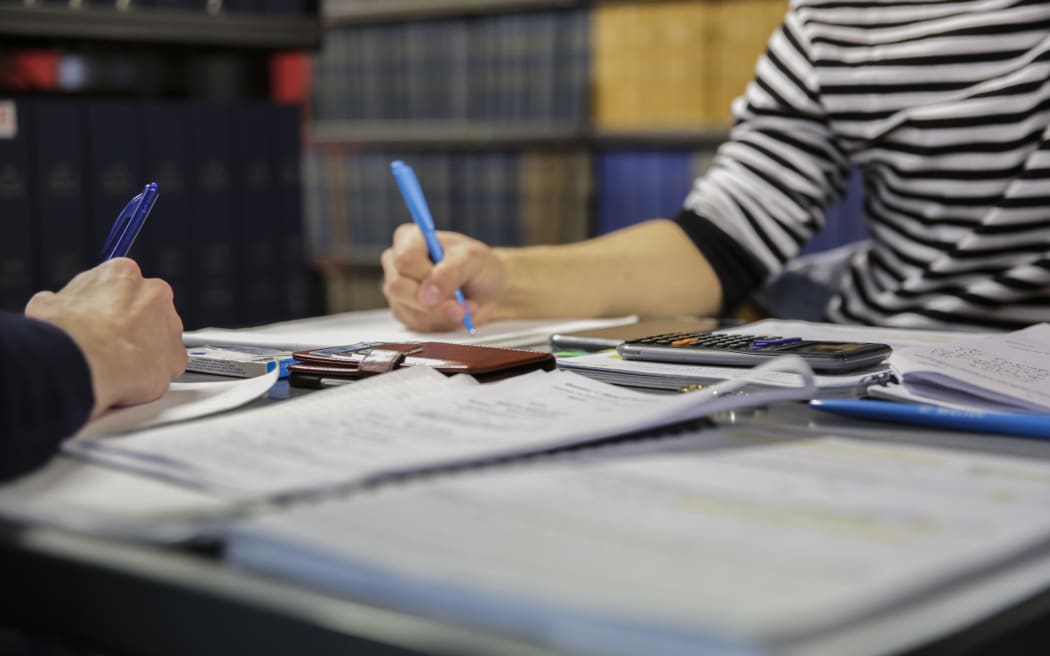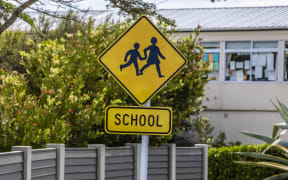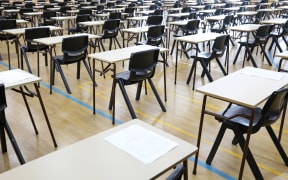
The figures show a drop of nearly two percentage points on reaching the benchmark - it is the lowest since 2014 and followed three years in which the achievement rate was nudging 84 percent. (file image) Photo: RNZ / Richard Tindiller
The number of 18 year olds with at least an NCEA Level 2 qualification dipped last year.
Education Ministry figures showed 51,562 or 82 percent of the more than 60,000 teenagers who turned 18 last year reached the benchmark, a drop of nearly two percentage points.
The ministry said Level 2 was regarded as the base qualification for further study or getting a job and Covid-19 had affected students' schooling.
The figures showed just over 78 percent of last year's 18 year olds achieved Level 2 at school, and a further four percent got it, or an equivalent qualification, after leaving.
The total, just over 82 percent, was the lowest since 2014 and followed three years in which the achievement rate was nudging 84 percent. The highest achievement rate was 85 percent in 2018.
The difference between last year's achievement rate and those recorded in the preceding three years was about 1.5 percent, meaning the lower achievement rate was caused by about 940 fewer 18 year olds reaching the benchmark.
The figures showed Māori students, students from poor communities and boys had the lowest achievement rates.
Considered by region, achievement rates ranged from a low of 78 percent in Tai Tokerau to 87 percent in Wellington.
The achievement rate for 18 year olds who attended decile 1 schools, meaning the 10 percent of schools with the highest concentration of students from poor communities, was 69 percent, while for those who attended a decile 10 school it was 95 percent.
Girls had an achievement rate of 84 percent compared with boys' rate of 81 percent.
The Level 2 achievement rate was 70 percent among Māori 18 year olds, 78 percent for Pacific 18 year olds, 85 percent for Pākehā, and 91 percent for Asian 18 year olds.
"For most individuals, attainment of at least NCEA Level 2 is the minimum qualification for successful labour-market participation," an Education Ministry report accompanying the figures said.
The report said staying at school was strongly linked to achieving Level 2.
"Staying in school until the end of Year 12, when most students are 17 years old, is critical to the attainment of NCEA Level 2 for most students. Students who stay in school past their 17th birthday are twice as likely to attain NCEA Level 2 (90.3 percent) as students who leave when they are 15 or 16 years old (44.9 percent)."
The report said Covid-19 and natural disasters had affected students' schooling and the Education Review Office (ERO) had found that the effect of the pandemic on schools had accumulated.
"ERO's research also found that Covid-19 has affected different groups of learners differently but has had more of an adverse effect on Māori and Pacific learners and learners from low socio-economic backgrounds. Compared to 2019, attainment and engagement in schooling for these learner groups have been generally lower."





